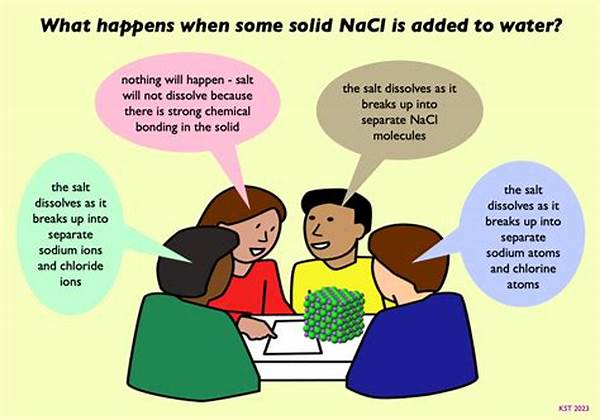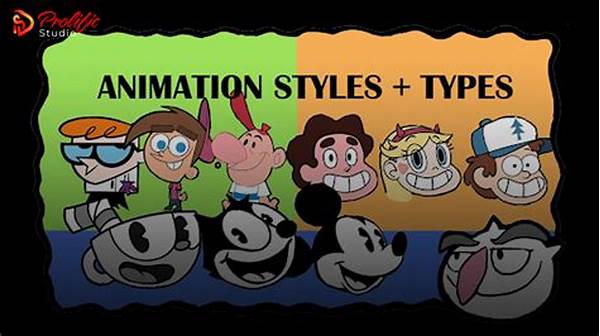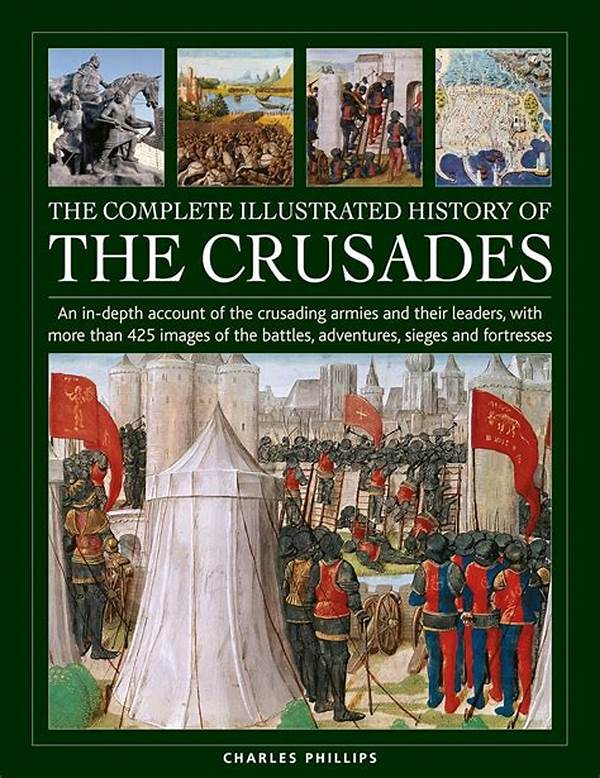Have you ever sat in a science class, staring at complex diagrams and listening to monotone lectures, feeling your brain turn to mush? What if I told you there’s a way to grasp those mind-boggling science concepts without feeling like you’re stuck in a mental marathon? Enter: cartoons that teach science concepts! These animated gems are the unsung heroes of education, transforming the dullest of lectures into fun, engaging lessons that actually make sense. Forget sleeping through another science class. Let’s dive into the colorful world of cartoons, where learning gets a vibrant twist!
Read Now : Animation And Cultural Diversity
Why Cartoons Make Science Fun
Cartoons have a secret weapon: they can simplify even the craziest science concepts into bite-sized pieces of pure fun. Imagine exploring the mysteries of the universe with your favorite animated characters guiding the way. It’s like turning your brain into a sponge, effortlessly soaking up knowledge. Cartoons that teach science concepts make learning feel less like a chore and more like an adventure. As these stories unfold, complex theories become accessible, triggering those “aha!” moments we all crave. And let’s be real—who wouldn’t want to learn about gravity from a character that defies it, or discover chemistry with a quirky scientist who makes mistakes just like we do?
These cartoons also cater to visual learners, incorporating vibrant illustrations and demonstrations that ensure the information sticks. It’s not just about memorizing facts; it’s about understanding the ‘why’ and the ‘how.’ So, next time you’re struggling to grasp a concept, ditch the textbook and reach for cartoons that teach science concepts. You’ll be surprised how quickly you become the class whiz!
Top 5 Cartoons That Teach Science Concepts
1. Bill Nye the Science Guy: Remember this guy? Bill makes science mesmerizing, using humor and enthusiasm to make even the driest subjects exciting.
2. The Magic School Bus: Taking you on wild rides through the body and beyond, this show transforms science fields trips into epic adventures.
3. Sid the Science Kid: Sid’s curiosity is infectious, encouraging viewers to question everything and discover the science hidden in their everyday lives.
4. Peep and the Big Wide World: With charming characters, it introduces basic science principles to young minds, making it a perfect starter for budding scientists.
5. Cosmos: A Spacetime Odyssey: Guided by the charismatic Neil deGrasse Tyson, this series makes complex astrophysics understandable and exhilarating.
The Power of Animation in Education
Cartoons are more than just entertainment; they’re powerful educational tools. Their ability to convey intricate ideas in relatable storylines fosters a unique learning environment where curiosity thrives. When children—or anyone, really—watch cartoons that teach science concepts, they’re not just observers; they become participants in the learning process. This active engagement helps break down barriers between science and those who find it intimidating or boring.
Moreover, the narrative and character elements inherent in cartoons help to anchor scientific concepts, making them memorable. It’s not just about absorbing information; it’s about experiencing stories where these facts come to life. Think of a cartoon character who uses scientific principles to solve problems—suddenly, those abstract ideas have practical applications that resonate. The world of animated science is one where creativity meets education, creating a dynamic and inclusive approach that traditional methods sometimes lack.
Incorporating Cartoons Into Classroom Learning
Incorporating cartoons that teach science concepts into the classroom provides an interactive platform that goes beyond conventional teaching methods. Teachers can use them to introduce new topics, clarify complex ideas, or even spark discussions that lead to further exploration. By captivating students’ attention, cartoons can bridge the gap between different learning styles, ensuring no student is left behind.
1. Attention-Grabbing: Cartoons immediately capture students’ attention, making the entry into complex topics smoother.
2. Simplification of Complex Ideas: By breaking down difficult concepts, they provide students with an approachable understanding of science.
3. Interactive Engagement: They encourage student participation, fostering an environment of discussion and inquiry.
4. Visual Memory Aid: Visual scenes aid retention of information better than text-heavy explanations.
5. Multisensory Learning: Engages different senses, helping cater to diverse learning needs.
Read Now : Digital Learning Platforms For Teaching
6. Bridging Theory and Practice: Illustrates the real-life relevance of scientific theories.
7. Promotes Critical Thinking: Challenges students to think critically about what they see and hear.
8. Encourages Curiosity: Stimulates a desire to learn more about the topic at hand.
9. Encourages Team Work: Can prompt group discussions and debates, encouraging collaboration.
10. Fun and Relaxing: Lowers resistance to learning by making science enjoyable and stress-free.
Cartoon Creators as Educators
Cartoons that teach science concepts embody the brilliance of educators and animators united by a common goal: to make science approachable for everyone. These creators are educational visionaries, designing content that challenges traditional norms and sparks intellectual curiosity. If you’ve ever watched a cartoon that piqued your interest in science, you owe it to the creators who blended education with entertainment.
Though the tone is whimsical, the ingenuity required to make intricate science topics relatable is immense. Characters are meticulously developed not just to entertain, but to serve as conduits for learning—examples we root for and learn from. Behind each successful educational cartoon is a team of writers, educators, and animators, whose collaborative efforts reshape the way we digest scientific information.
These cartoons are trailblazers in modern education, addressing diverse student needs across the globe. They help demystify science, transforming it from a daunting subject into an exciting journey. Credits might roll after each episode, but those lessons linger, fostering a generation of thinkers and dreamers. So, next time you tune in to cartoons that teach science concepts, appreciate the artistry that makes learning so delightfully simple.
The Future of Educational Cartoons
In a world that is continuously evolving, adapting educational strategies to include media like cartoons is more crucial than ever. The future holds immense potential for cartoons that teach science concepts as educational tools. As technology advances, the creative possibilities for these cartoons expand, offering more interactive, customizable, and immersive learning experiences.
Imagine virtual reality cartoons that allow students to walk on distant planets, exploring the surfaces and learning about alien ecosystems firsthand. Or augmented reality features that bring scientific phenomena into homes and classrooms for palpable understanding and interaction. The horizon looks promising, teeming with novel ideas poised to revolutionize education.
But regardless of how advanced or high-tech cartoons become, their core mission remains unchanged: to make science accessible and enjoyable for everyone. It’s about lighting the spark of curiosity that encourages students to explore, question, and learn even outside the classroom’s confines. As we look to the future, one thing is clear: cartoons that teach science concepts will continue to bridge the gap between education and engagement, shaping learners of tomorrow.
Conclusion: Cartoons Making Science Attainable
Incorporating cartoons that teach science concepts into both traditional and modern educational frameworks could be the key to unlocking a newfound love for learning amongst students. They offer a fresh perspective by combining education with storytelling, resulting in lessons that are both meaningful and impactful. By cultivating a culture where science is seen as an accessible narrative, we pave the way for a generation of informed, enthusiastic learners eager to explore the scientific wonders of the world around them.
So, whether you’re a student, teacher, or lifelong learner, embrace these animated guides on your educational journey. Let cartoons be more than just a break from reality; let them be a bridge to understanding the complexities of science in a way that’s as entertaining as it is enlightening.



